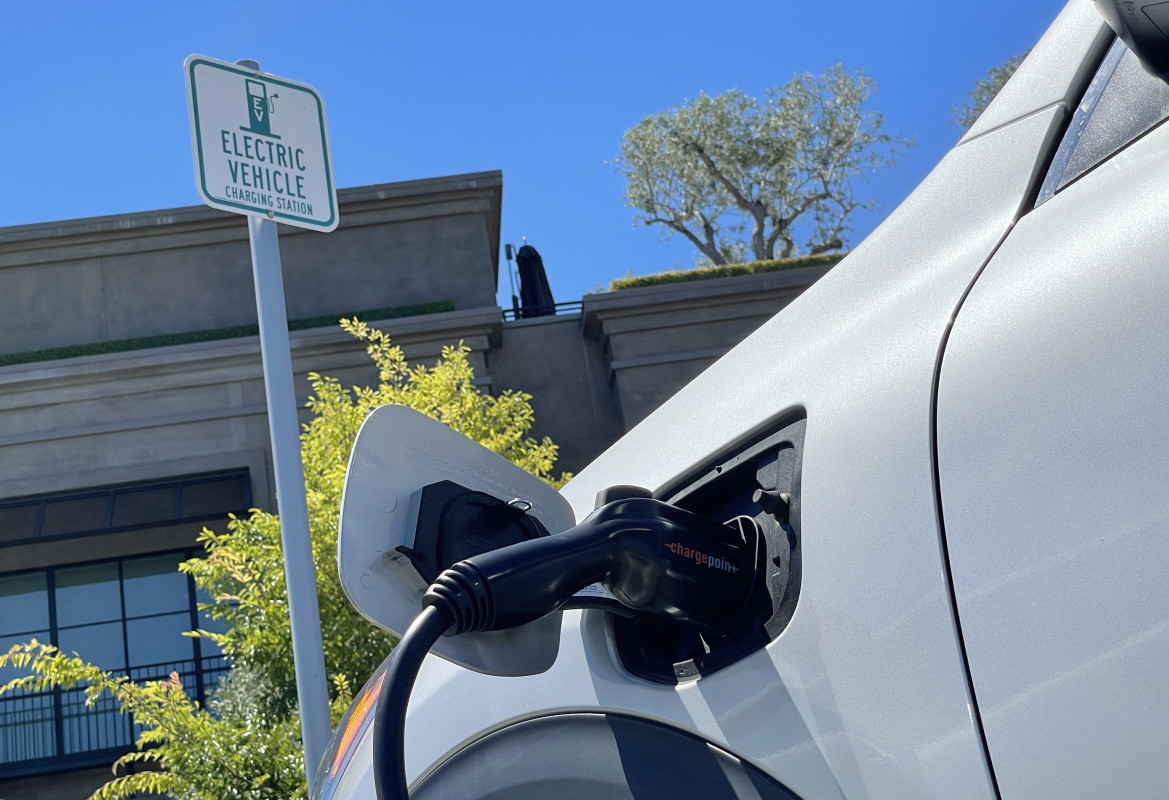
For a while, it seemed like every other week another state was adopting California's standards.
Last year, the Golden State adopted regulations that would require all new passenger cars, trucks and SUVs sold in California to be zero emission vehicles by 2035.
Related: General Motors surges on dividend boost, $10 billion buyback, new profit outlook
Several states followed suit, including Vermont, New York, Washington, Oregon, Massachusetts, Virginia, Rhode Island and Maryland, and most recently New Jersey.
Connecticut was also pushing the California plan.
Over the summer, Gov. Ned Lamont proposed regulations to make cars and trucks up to 90% cleaner and to require vehicle manufacturers to deliver more zero-emission vehicles to drivers while also increasing consumer protections.
“Connecticut and our neighboring states are taking decisive action to meet our climate pollution reduction targets,” Lamont said on July 26. “Cars and trucks represent the largest air pollution sector in our state and these regulations are moving in coordination with commitments made by vehicle manufacturers to go all in on electrification.”
Facing mounting opposition
However, those plans have hit a snag and now Lamont is reportedly withdrawing his proposal to ban the sale of gas-powered cars in the Constitution State by 2035 after facing mounting opposition.
The withdrawal was announced during the Nov. 28 meeting of the General Assembly’s Regulations Review Committee.
Jonathan Dach, the governor’s chief of staff, said that the administration reluctantly made the decision to withdraw the regulations after being told that opponents on the bipartisan committee had the votes to kill them and not merely reject them without prejudice, an action that would allow a later attempt at passage, CT Mirror reported.
“Unfortunately, a misinformation campaign fueled by the fossil fuel industry won and Connecticut residents will pay the price,” said Ruth Canovi, director of advocacy with the American Lung Association in Connecticut, according to the Associated Press.
Lamont's office did not immediately respond to a request for comment.
A post on X, formerly Twitter, said that the U.S. Department of Energy will release $47.5 million from President Joe Biden's Bipartisan Infrastructure Law to create a new battery manufacturing plant in Bridgeport.
"This project will create hundreds of good-paying jobs and strengthen our role in the clean energy economy," the tweet said.
Worries about cost of EVs
Republicans and others say they’re worried about the high cost of electric vehicles, the availability of charging stations and the ability of the state’s electric grid to handle the anticipated changeover from gas-combustion engines to electric vehicles.
However, a compromise plan to eventually end the sale of gasoline-powered vehicles in Connecticut could be worked out as early as next year’s legislative session.
House Speaker Matt Ritter, a Democrat from Hartford, said that his members had planned to meet to discuss possible legislation that addresses concerns about the regulations.
“We have to do more,” said Ritter. “We have to demonstrate to Connecticut residents that this switch will not only save the environment, save lives, and save our planet — but not leave you in a position where you can no longer afford a vehicle.”
“I’m hoping that this next look will take into consideration the affordability and the impact it’s going to have on residents, especially people that live in the cities,” State Rep. Vincent Candelora, the Republican leader of the Connecticut House of Representatives.
“So we really need a broader conversation, looking at the electric grid and the feasibility of being able to do something like this," he said.
The new legislative session begins Feb. 7.
Meanwhile in a public letter to President Biden, 3,882 car dealers spread across the country are asking that his administration slow down its proposed regulations mandating the production and distribution of electric vehicles.
- Action Alerts PLUS offers expert portfolio guidance to help you make informed investing decisions. Sign up now.







